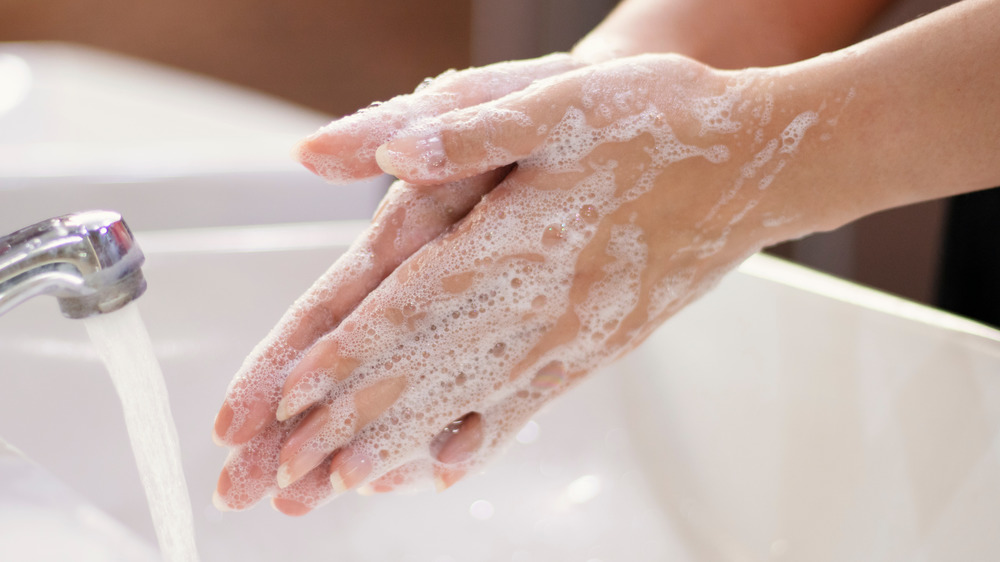Don't Put Hand Sanitizer On Your Face. Here's Why
While hand sanitizer is an effective means to kill potentially harmful germs picked up from frequently touched surfaces, science shows it's important to limit our use of sanitizer exclusively to our hands. While these hand gels serve the purpose of sanitizing, it's important to know that sanitizing is not the same as cleaning.
The skin on our face is delicate and susceptible to many internal and external influences. Because of this, the U.S. Food and Drug Administration (FDA) has cautioned against the long-term use of hand sanitizers (via Divine Dermatology). Sanitizer can cause both skin irritation and painful skin reactions. The alcohol in hand sanitizer can prompt feelings of burning or itching and in extreme cases, peeling. Because sanitizer dries out the outermost layers of our skin, the use of it on our sensitive faces may result in harsher outcomes than what we might experience on our hands.
In more severe instances, certain chemicals used in hand sanitizers can cause allergic reactions or even more critical disorders. Although most sanitizers are made up of alcohol, there are some that instead use an antibacterial ingredient called triclosan.
Using hand sanitizer on your face can cause skin irritation, peeling, or even certain skin disorders
Tricolsan has been linked to a number of health risks such as negative effects on fertility and reproductive health, hormone imbalances, suppressed immune system, and even nonresponse to antibiotics (via Eat This, Not That!). In addition, infection can put you at risk of developing certain skin conditions, a common one being eczema. Often experienced as a dry itchy rash, our faces are particularly prone to eczema (via Verywell Health). Experts elaborate saying, "atopic dermatitis, the most common type of eczema overall, is very common on the cheeks and chin (especially in infants), as well as around the eyes, on the eyelids, and around the lips (for adults). It can, however, occur anywhere on the face or the rest of the body." Some environmental factors that can induce an eczema breakout include certain soaps, shampoos, and yes, hand sanitizers.
All in all, it's important to make sure we keep sanitizer to our hands, and alternatively, keep soap and water to our faces as a safer and more effective means of cleaning. Tsippora Shainhouse, M.D., FAAD, a board-certified dermatologist in Beverly Hills explains to Eat This, Not That!, "They do not remove physical dirt/grime/mucus, and so, are not meant to physically wash your hands." While sanitizer is a means to remove bacteria and other microbes on our hands, remember to stick exclusively to face washing as well as hand washing whenever possible.


